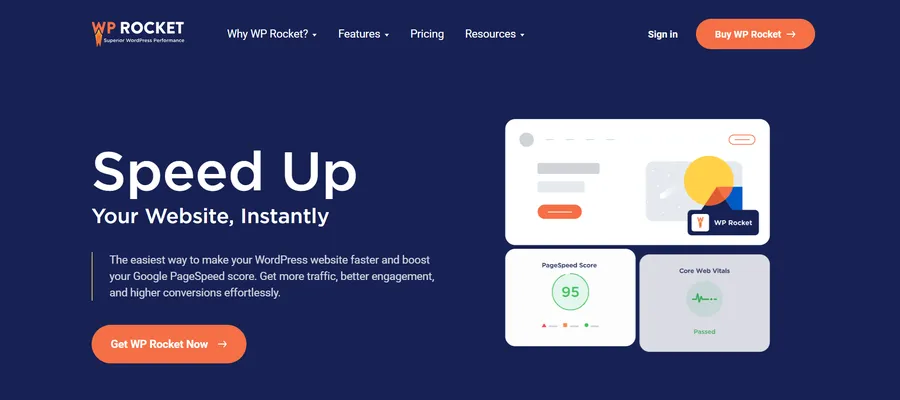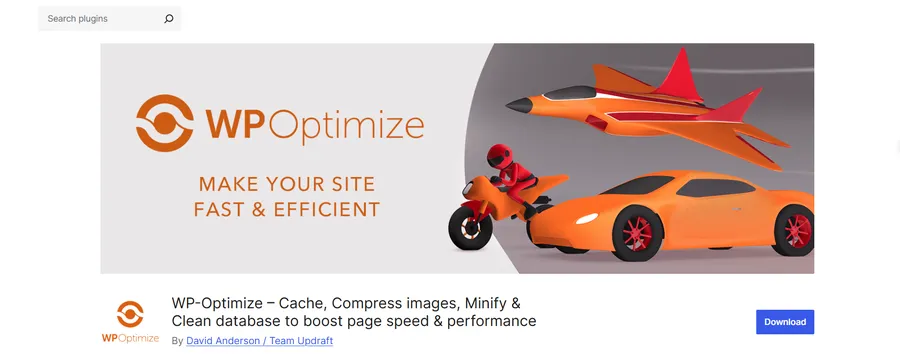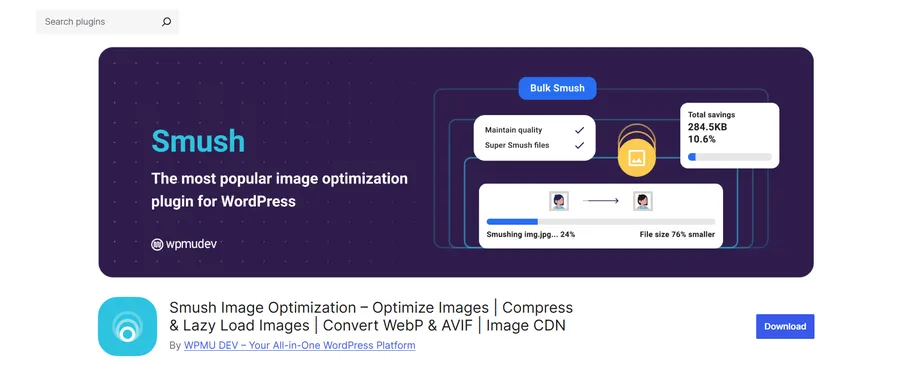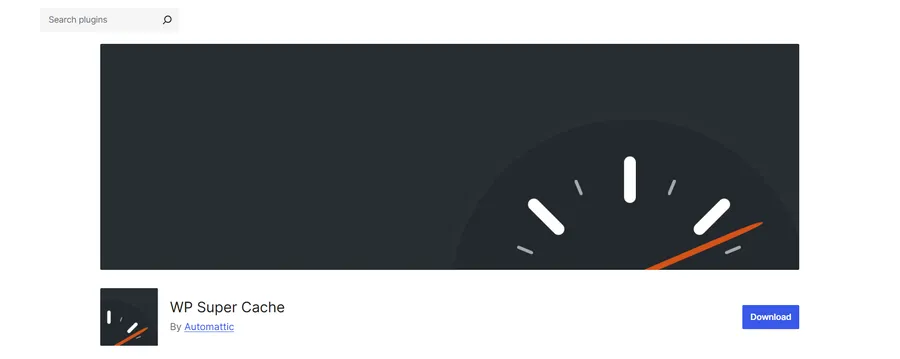You’ve poured countless hours into perfecting your content and design. But is a slow-loading website quietly sabotaging all your hard work? It’s a frustrating reality: modern users have no patience for delays. They’ll abandon your site in seconds, your bounce rate will climb, your conversion rate will drop, and your competitors will reap the rewards.
Fortunately, the solution is closer and simpler than you think. The right set of WordPress performance plugins can automate the complex task of optimization. In this guide, we’ll introduce you to six essential tools that will help you speed up WordPress, delight your users, and apply the right content marketing strategies for success.
Table of Contents
LearnPress – WordPress LMS Plugin
We provide an amazing WordPress LMS plugin to create & sell online courses. Let’s find out!
Try Now1. WP Rocket: The All-in-One Powerhouse
WP Rocket is widely regarded as the most powerful and user-friendly premium caching plugin WordPress offers. It’s an all-in-one solution designed for users who want maximum results with minimal configuration. Upon activation, WP Rocket immediately applies over 80% of web performance best practices, providing an instant boost to your page load time.
Key Features:
- Page Caching: Creates static HTML files of your pages, reducing server processing time for subsequent visitors.
- File Optimization: Offers minification for HTML, CSS, and JavaScript files, shrinking their size and improving load speed. It can also combine files to reduce HTTP requests.
- Lazy Loading: Delays the loading of images and iframes until they are about to enter the user’s viewport, which is crucial to speed up WordPress on media-heavy pages.
- Database Optimization: Cleans your database by removing old revisions, drafts, and trashed comments to keep it lean and efficient.
- CDN Integration: Works seamlessly with most Content Delivery Networks to distribute your content globally and reduce latency.
Price:
WP Rocket is a premium-only plugin. Plans start at $59 per year for a single website.

2. WP-Optimize: The Database & Asset Specialist
While many plugins focus on caching, WP-Optimize takes a different approach by targeting your site’s core: the database. Over time, your WordPress database accumulates unnecessary data like post revisions, spam comments, and transient options, which can slow down query times. WP-Optimize is an excellent tool that cleans this clutter and also provides caching and image compression features.
Key Features:
- Comprehensive Database Cleaning: Removes all unnecessary data with a single click and allows you to schedule regular automated cleanups.
- Image Compression: Compresses large image files using cutting-edge lossy or lossless techniques to reduce their size without sacrificing quality.
- Site Caching: A powerful caching feature that ensures your pages are served quickly, directly competing with dedicated caching plugins.
- Minification and Combination: Minifies and combines CSS and JavaScript files to streamline asset loading.
Price:
WP-Optimize offers a robust free version. The premium version, with advanced features like multisite support and scheduling, starts at $49 per year.

3. LiteSpeed Cache: The Server-Level Solution
If your website is hosted on a server running LiteSpeed Web Server, then the LiteSpeed Cache plugin is an unbeatable choice. Unlike other plugins that operate at the application level, LiteSpeed Cache communicates directly with the web server for superior performance. This server-level caching is significantly more efficient and provides a noticeable boost to your WordPress speed optimization efforts.
Key Features:
- Server-Level Full-Page Cache: Offers caching capabilities that are more powerful than standard file-based caching plugins.
- Free QUIC.cloud CDN Cache: Provides a free, high-performance CDN to all users, helping to optimize website speed for a global audience.
- Broad Optimization Features: Includes image compression, database optimization, minification of CSS/JS/HTML, and lazy loading for images.
- HTTP/3 Support: Fully compatible with the latest web protocols for even faster and more secure connections.
Price:
The plugin itself is free. However, it requires a LiteSpeed Web Server, which is available from many hosting providers. Some premium features connect to the QUIC.cloud service, which has free and paid tiers.

4. Smush: The Image Optimization Expert
Images are often the heaviest elements on a webpage, making image compression one of the most effective ways to speed up WordPress. Smush is an award-winning plugin dedicated to resizing, optimizing, and compressing your images. It’s incredibly user-friendly and can be set up to automatically optimize every image you upload.
Key Features:
- Lossless Compression: Reduces image file sizes without any visible loss in quality.
- Bulk Smush: Allows you to optimize up to 50 images at a time with the free version and all existing images in your media library with the Pro version.
- Lazy Loading: Prevents off-screen images from loading until the user scrolls to them, significantly improving initial page load time.
- Incorrect Size Image Detection: Highlights images that are not properly sized for their containers, helping you fix performance issues.
- WebP Conversion: The Pro version can convert your images to the next-gen WebP format, which Google prefers for its superior compression.
Price:
A powerful free version is available from WordPress.org. Smush Pro is available as part of the WPMU DEV membership, starting at $7.50 per month.

5. WP Super Cache: The Reliable Free Caching Plugin
Developed by Automattic, the company behind WordPress.com, WP Super Cache is one of the most downloaded and trusted free caching plugins available. It’s an excellent choice for beginners or those on a budget who need a simple yet effective way to optimize website speed. The plugin works by generating static HTML files from your dynamic WordPress blog and serving those files to visitors.
Key Features:
- Three Caching Modes: Offers Simple (recommended for most users), Expert (requires .htaccess modification for the fastest speed), and WP-Cache caching modes.
- CDN Support: Integrates with Content Delivery Networks to further improve loading times for a global audience.
- Cache Rebuilding: Automatically rebuilds the cache for your pages after you publish a comment or post, ensuring content is always up-to-date.
- Preloading: Allows you to generate cached files for all your posts and pages, so visitors always receive a fast, cached version.
Price:
WP Super Cache is completely free.

6. Autoptimize: The Code Optimization Specialist
Autoptimize focuses on one thing and does it exceptionally well: optimizing your website’s code. It works by aggregating, minifying, and caching your scripts and styles. While many all-in-one WordPress performance plugins include minification, Autoptimize offers more granular control and is a great companion to a dedicated caching plugin WordPress might already have, like WP Super Cache.
Key Features:
- Advanced Minification: Minifies HTML, CSS, and JavaScript, removing unnecessary characters to reduce file sizes.
- Script and Style Aggregation: Combines multiple CSS and JavaScript files into one, reducing the number of requests to the server.
- Defer and Async Options: Allows you to defer non-critical CSS and JavaScript, preventing them from blocking the initial rendering of your page and improving your Core Web Vitals score.
- Image Optimization Integration: Can be connected with ShortPixel to also handle image compression and lazy loading.
Price:
Autoptimize is free, with premium plans available for more advanced features and configuration support.

Conclusion
Improving your site’s performance is one of the highest-impact investments you can make. A faster website leads to happier visitors, better engagement, and higher search engine rankings. The task to speed up WordPress might seem daunting, but with the right tools, it is entirely achievable.
Start by identifying your biggest performance bottlenecks. If your site is media-heavy, begin with an image optimizer like Smush. If your database is old, use WP-Optimize. For an all-around powerful solution, WP Rocket is an unbeatable choice. By selecting one or more of the plugins from this list, you are taking a crucial step in your WordPress speed optimization journey. With a faster site, you can then focus on the essential settings to truly build your platform for success.
FAQs About Speed Up WordPress
Q1. What is the single BEST plugin to speed up WordPress?
There's no single "best" plugin for everyone, as it depends on your needs. However, for most users, especially beginners, WP Rocket is widely considered the top choice. It’s a powerful and easy-to-use, all-in-one solution that automatically handles caching, file optimization, database cleanup, and more without requiring complex configuration.
Q2. Can I use multiple speed optimization plugins at the same time?
The answer is yes, but with caution. The most important rule is to never use two caching plugins at the same time (e.g., WP Rocket and WP Super Cache), as they will conflict. However, it's common and often recommended to combine plugins with different functions, such as using WP Rocket (for caching and file optimization) with Smush (for image compression).
Q3. Are free WordPress speed plugins good enough?
Yes, free plugins like WP Super Cache or Autoptimize are very effective and can make a huge difference to your site's speed. However, premium plugins like WP Rocket offer advantages in convenience (all-in-one features), a more user-friendly interface, and access to a professional support team when you run into issues.
Q4. Why is speeding up my website so important for my LearnPress courses?
Website speed is critically important for a successful LearnPress site. A slow-loading course page or a lagging quiz leads to student frustration and can significantly increase course drop-out rates. Ultimately, a fast, responsive website creates a seamless learning experience, which boosts student engagement, improves course completion rates, and increases your sales.
Q5. How can I test my website’s speed after installing these plugins?
You should test your speed before and after installing and configuring a plugin to see the actual difference. Use popular and free tools like:
Google PageSpeed Insights: Analyzes performance on both desktop and mobile, with a focus on Core Web Vitals.
GTmetrix: Provides highly detailed reports on your load time and identifies areas for improvement.
Read more: 10+ Best WordPress Blog Themes: Top Picks for Pro Blogs
Contact US | LearnPress:
Website: https://learnpresslms.com/
Fanpage: https://www.facebook.com/learnpresslms
Email: [email protected]



